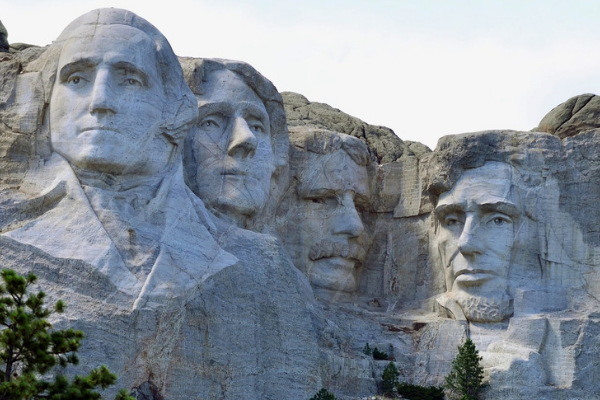Beginning July 1, 2019, several new laws affecting South Dakota trust companies and South Dakota trusts will become effective. During my testimony on trust legislation during the 2019 Legislative Session, I likened the process of updating South Dakota’s trust statutes to weeding the garden to keep it healthy and productive. The annual package of legislative updates resulting from the work of the Governor’s Task Force on Trust Administration & Reform (“TTF”) along with the revisions drafted by the South Dakota Division of Banking (“DOB”) yields the statutory equivalent of a healthy and productive garden for families, fiduciaries and other folks to enjoy in helping them achieve their objectives.
Two Bills were enacted this past session affecting South Dakota trusts and trust companies. House Bill 1033, authored by the DOB, represents the regulatory piece impacting South Dakota trust companies. Senate Bill 51, authored by the TTF, represents the trust industry piece that impacts South Dakota trusts. Though not directly related to trusts, also notable was passage of blockchain technology legislation, House Bill 1196. All three Bills are summarized in this memo.
Notable items in House Bill 1033 (the DOB’s regulatory legislation) include:
- Revisions to SDCL 51A-6A-19.2 give the Director discretion to increase a trust company’s pledge of assets to the Division in the event the company presents a unique or excessive risk to the Division. A hearing procedure is established in the event the company disagrees with the pledge requirement.
- Revisions to SDCL 51A-6A-24 streamline the process of retiring a trust company’s preferred shares.
- Revisions to SDCL 51A-6A-27 & 28 modify the restriction on funding trust company dividends with surplus capital, with the Director’s approval. The change authorizes using surplus capital to fund dividend distributions if the company is in compliance with its minimum capital requirements and the Director pre-approves the dividend distribution.
Notable items in Senate Bill 51 (the TTF legislation) include:
- SDCL Chap. 55-3 was revised by adding a new statutory mechanism for trustees to resign when the governing instrument is either silent or ineffective in adequately securing a resignation. Resignation from both revocable and irrevocable trusts are addressed. This guidance is helpful by providing trustees a path to resign when the governing instrument is silent or vague.
- SDCL 21-22-12 was amended to provide a trustee a method to transfer trust assets when a trustee resigns and the office of trustee is vacated as well as trustee protection for availing themselves of the procedure set forth in the new law. This is companion legislation to the revisions discussed in SDCL Chap. 55-3, above. Both are significant changes resulting from a multi-year study of these issues by the TTF. They are welcome guidance for trustees presented with unique issues on certain trusts.
- SDCL 55-3-6 now states, “Unless the terms of a trust expressly reserve a power to the settlor to revoke or modify a trust, a trust shall be irrevocable.”
- South Dakota’s trust modification statute, SDCL 55-3-24, was amended to add a notice requirement. Written notice must now be provided to all fiduciaries prior to when the trust modification or termination becomes effective. The notice requirement can be waived by the fiduciaries.
- South Dakota’s new and improved Virtual Representation statute continues to be well received in the trust planning community. SDCL 55-18-1 was revised to provide further guidance on when a material conflict of interest may exist between a representative and another interested beneficiary.
Marking the first instance the South Dakota legislature addressed blockchain technology legislation, House Bill 1196 was introduced this past Legislative Session. It added a definition of blockchain technology to South Dakota’s Uniform Electronic Transmissions Act. SDCL 53-12-1 now acknowledges blockchain technology and confirms blockchain transmissions are in fact statutorily recognized electronic transmissions under South Dakota law. The definition does not require the use of blockchain, but merely expressly indicates blockchain transactions are permitted electronic transmissions. This is an important addition to our state law and provides comfort to trustees holding blockchain assets in South Dakota trusts.
There you have it. Another eventful Legislative Session is now in the books. Planning is already under way for the next Legislative Session. If you have any recommendations for legislation or need additional information on 2019 legislation, please don’t hesitate to contact me.
Patrick G. Goetzinger
Senior Partner
605-342-1078
Patrick@gpna.com


